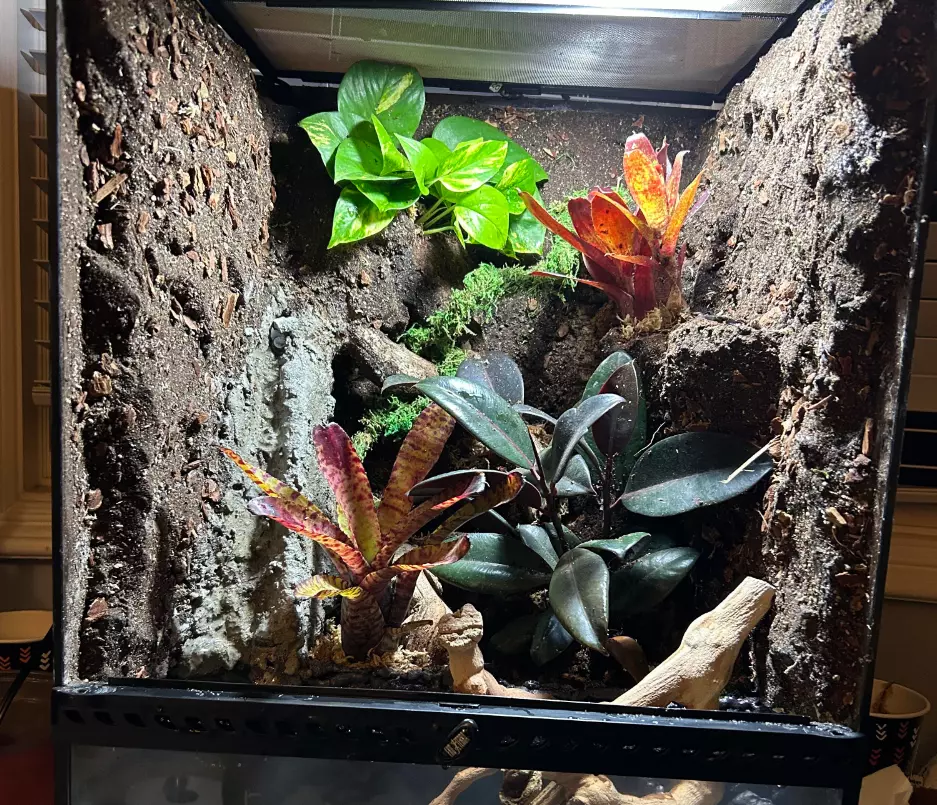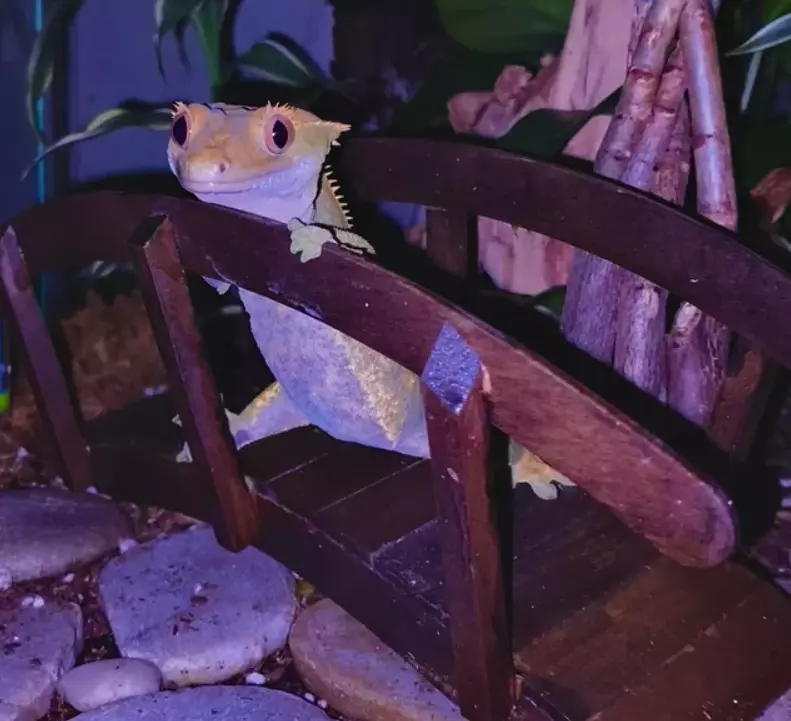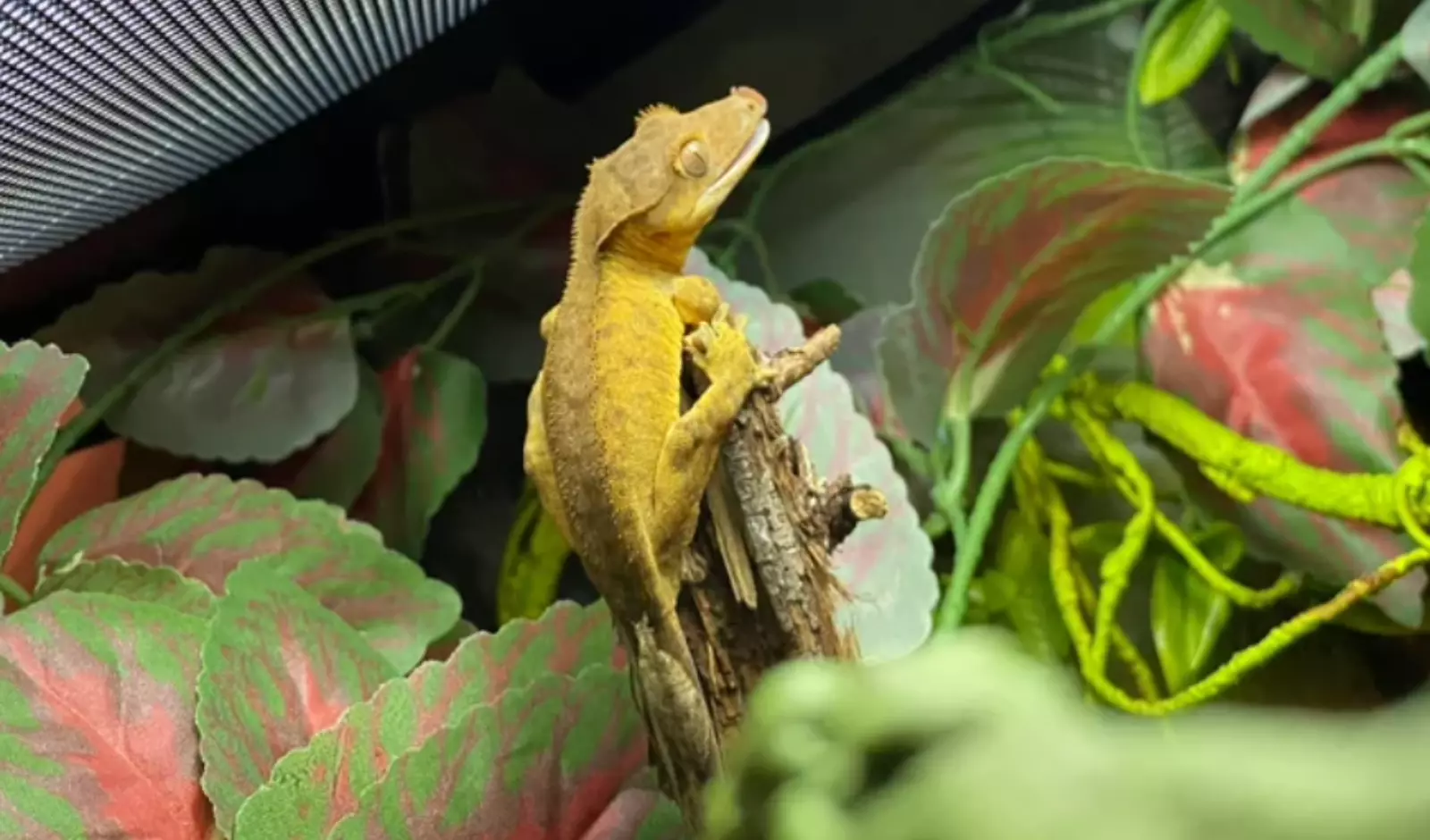It’s not just a day, a month, or even one year; I’ve owned a crested gecko for around three years now!
The first day we met was at one of my friend’s birthday parties.
At first, I thought it would be a chameleon but was confused by the body shape and behavior. I curiously asked,
“What is it? A chameleon?”
He smiled and said, “No, it’s a crested gecko.“
As I hadn’t seen or even heard of this type of creature, it was common to get confused.
But, once we were done eating our dinner, I asked him everything that was on my mind at that time. Lol
The next day, I decided to buy one and went to a breeder in my area. Unfortunately, at that time, he had finished supplying.
He gave me the contact information of another breeder who had all types of lizards and told him about mine.
However, after traveling around 7 miles, I brought my first crested gecko home, and honestly, that day I was more excited than I had ever been before! Haha…
Is Crested Gecko Really A Good Pet?
Here are some things you need to consider before you bring a crested gecko to your home:
1) Housing and Environment

One of the first things you need to consider before getting a crested gecko is what they actually need to live in and the type of environment they prefer.
Typically, they require a spacious and secure enclosure that mimics their natural habitat.
The size of the enclosure depends on the number and size of your geckos, but generally, a single adult crested gecko needs at least a 20-gallon tank with vertical space.
You can also use glass or plastic tanks with mesh lids or screen cages with front-opening doors.
However, the enclosure should include plenty of plants, branches, vines, cork bark, or other decorations that provide hiding places, climbing opportunities, and visual appeal.
If you want to use live or artificial plants inside the cage, go ahead! Just make sure they are non-toxic and sturdy.
2) Temperature and Humidity

Crested geckos like it best when it’s around 72°F to 80°F during the day and 65°F to 75°F at night. They also enjoy a bit of humidity, around 60% to 80%.
To keep them healthy, make sure they have a dry spot to prevent respiratory issues and mold.
Remember, crested geckos don’t need UVB light because they’re active at night and get their vitamin D from their food.
But I use a low-wattage UVB bulb for 10 to 12 hours a day to mimic a natural day and night cycle, make their colors pop, and encourage them to fire up more often.
3) Diet and nutrition

One key thing to remember is their diet!
Crested geckos are not picky eaters – they enjoy both plants and animals.
In the wild, they munch on fruits, nectar, pollen, insects, and small creatures. In captivity, you have various food options that provide the nutrients they need.
However, if you don’t want to through the hassle, commercial crested gecko diet (CGD) will be a great choice.
These are specially produced to give your gecko all the essential vitamins, minerals, and proteins they need.
Tip: Stay away from foods that aren’t suitable for your gecko, like dairy, meat, nuts, seeds, grains, chocolate, candy, or human junk food. These can lead to digestion issues, allergies, nutritional problems, or even poisoning. Keep your gecko safe by sticking to the right diet.
F.A.Q.s
Q: How long do crested geckos live?
Crested geckos have a relatively long lifespan, typically living for 15 to 20 years when provided with proper care and a suitable environment.
This extended lifespan makes them a great choice for pet owners seeking a long-term reptile companion.
Q: How big do crested geckos get?
Crested geckos are considered small to medium-sized geckos.
On average, they reach a length of 7 to 9 inches (17.5 to 23 cm), including their tails.
Males tend to be slightly larger than females, but their size remains manageable, making them suitable for reptile enthusiasts with limited space.
Q: Can crested geckos live together?
Crested geckos are generally solitary creatures and do not require the company of other geckos.
In fact, they can become territorial and aggressive when housed together, potentially leading to stress and injuries.
It’s best to keep them separate to ensure their well-being.
Q: How can I tell the sex of my crested gecko?
It’s quite easy to tell the gender of a crested gecko.
Male crested geckos usually have noticeable V-shaped pores just above their backside.
These pores are used for leaving scent marks. Females, on the other hand, don’t have these pores.
Moreover, grown-up males often have a bulge near the base of their tail, while females usually have a smoother tail base.
These physical features make it pretty simple to distinguish between male and female crested geckos.


[…] Crested gecko is a very cute and easy-to-care-for reptile. […]
[…] geckos are small, cute, easy to care for, and come in a variety of colors and […]
[…] you have a crested gecko, you might notice that sometimes they enjoy digging and hiding in their […]
[…] In the early 2000s, I became really interested in Crested geckos. […]
[…] Dubia roaches are another popular and convenient insect for crested geckos. […]
[…] average lifespan of a crested gecko depends on whether it’s living in the wild or in […]
[…] Crested geckos shed their skin as a natural process of replacing old and dead skin cells with new ones. […]
[…] They are nocturnal creatures, meaning they’re naturally active at night and sleep during the day. […]